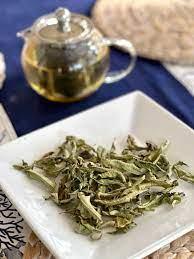Digestive health plays a critical role in our overall well-being. From how we absorb nutrients to how we manage stress, the gut is central to daily life. As awareness grows around natural wellness and gut support, more people are turning to simple, herbal solutions like digestive tea. What might seem like a calming cup of tea can actually become a powerful daily habit for better digestion, reduced discomfort, and long-term gut health.
In this article, we explore why digestive tea is more than just a temporary fix—and how it offers sustainable, long-term benefits when integrated into your daily routine.
What Is Digestive Tea?
Digestive tea refers to herbal teas specifically formulated to support the digestive system. These blends often include herbs like:
- Ginger – known for its anti-nausea and anti-inflammatory effects
- Fennel – used to relieve bloating and gas
- Peppermint – helpful for soothing intestinal muscles
- Chamomile – reduces inflammation and promotes relaxation
- Licorice root – supports gut lining and digestion
- Dandelion – supports liver function and bile production
These herbs have been used for centuries in traditional medicine systems such as Ayurveda and Traditional Chinese Medicine to support digestion naturally and gently.
Long-Term Benefits of Digestive Tea
When consumed consistently, digestive tea can deliver a wide range of health benefits that extend far beyond short-term relief. Here’s how developing this daily habit can positively influence your gut and overall wellness:
1. Improved Digestion
One of the most immediate effects of digestive tea is its ability to improve how your body breaks down and processes food. Herbs like ginger and dandelion stimulate digestive enzymes and bile, making nutrient absorption more efficient.
2. Natural Gas Relief
Frequent bloating and discomfort from gas can be disruptive and uncomfortable. A good gas relief tea, typically containing peppermint, fennel, or anise, works by relaxing intestinal muscles and reducing trapped gas. Over time, regular use can help train your system to be less reactive to gas-producing foods.
3. Reduced Inflammation in the Gut
Chronic inflammation in the gastrointestinal tract can contribute to a range of digestive issues, from irritable bowel syndrome (IBS) to leaky gut syndrome. Anti-inflammatory herbs like chamomile and licorice root calm the gut lining, reduce irritation, and support tissue healing when consumed regularly.
4. Better Bowel Regularity
Many digestive tea blends support more consistent bowel movements without the harsh effects of stimulant laxatives. Dandelion root, licorice, and ginger gently support liver and colon function, helping maintain regularity and preventing constipation.
5. Support for the Gut-Brain Connection
The gut and brain are closely linked, and stress can have a major impact on digestion. Herbal teas that include calming ingredients such as lemon balm or chamomile can help regulate the nervous system and reduce stress-related digestive issues like cramps, indigestion, or sudden bowel changes.
Making Digestive Tea Part of Your Routine
To get the full long-term benefits of digestive tea, consistency is key. Here are a few tips for making it a seamless part of your day:
- Start Your Morning Right
Begin your day with a warm cup of tea containing ginger, cinnamon, or dandelion. These ingredients can kickstart digestion and prepare your body for food intake.
- Sip After Meals
Drinking gas relief tea after meals can prevent discomfort before it starts. A blend with fennel or peppermint is perfect for settling your stomach and supporting digestion.
- Unwind in the Evening
Use your nighttime tea as a way to relax. A chamomile or lemon balm-based blend supports both digestion and sleep. This not only soothes your gut but helps your body transition into rest-and-repair mode.
- Stay Hydrated
While tea isn’t a substitute for water, it contributes to overall hydration—another essential component of digestive health. Herbal teas are caffeine-free and can be consumed throughout the day without dehydrating effects.
Choosing the Right Blend for Your Body
Not every digestive tea will work the same for everyone. Your body’s needs, sensitivities, and symptoms should guide your selection. For example:
- If gas and bloating are frequent issues, opt for a gas relief tea with fennel and peppermint.
- If you have acid reflux, avoid strong mint and citrus-based teas, and choose soothing herbs like marshmallow root or chamomile.
- If constipation is your concern, teas with dandelion or a touch of senna (used occasionally) may help stimulate movement.
It may take a bit of experimentation, but once you find the right combination, you’ll likely notice significant improvement in how you feel day to day.
Complement with Gut-Friendly Habits
To maximize the benefits of digestive tea, pair it with healthy habits like:
- Eating a diet high in fiber and low in processed foods
- Managing stress with mindfulness or breathing techniques
- Getting regular exercise to support motility
- Staying hydrated throughout the day
- Eating slowly and mindfully to aid digestion
These habits work synergistically with herbal teas to create a lifestyle that promotes lasting digestive health.
Final Thoughts
Digestive tea is more than just a comforting beverage—it’s a simple, natural tool for nurturing your digestive system and improving your quality of life. Whether you're looking to relieve occasional discomfort or support long-term gut health, these herbal blends offer consistent, sustainable benefits.
By choosing the right gas relief tea or general digestive support blend, and making it part of your routine, you can transform how your body feels, processes food, and even responds to stress. Over time, this gentle practice can lead to real, noticeable improvements—not just in your digestion, but in your overall wellness.

